Orthopaedic Mattress Buying Guide
What is an ortho mattress and how can it help relieve back pain?
If you suffer from a bad back, you'll want your mattress to offer the perfect amount of support to keep those aches and pains at bay, helping you get a proper night's sleep. Even the most comfortable mattress can cause discomfort as we age, or our body changes and we need different levels of support. That's where the orthopaedic mattress comes in.
Designed to support your joints and back and align your spine correctly, orthopaedic mattresses are specially designed to ease tension on key pressure points by providing tailored support.
Take a look below as we explain everything you need to know on how to find the best orthopaedic mattress.
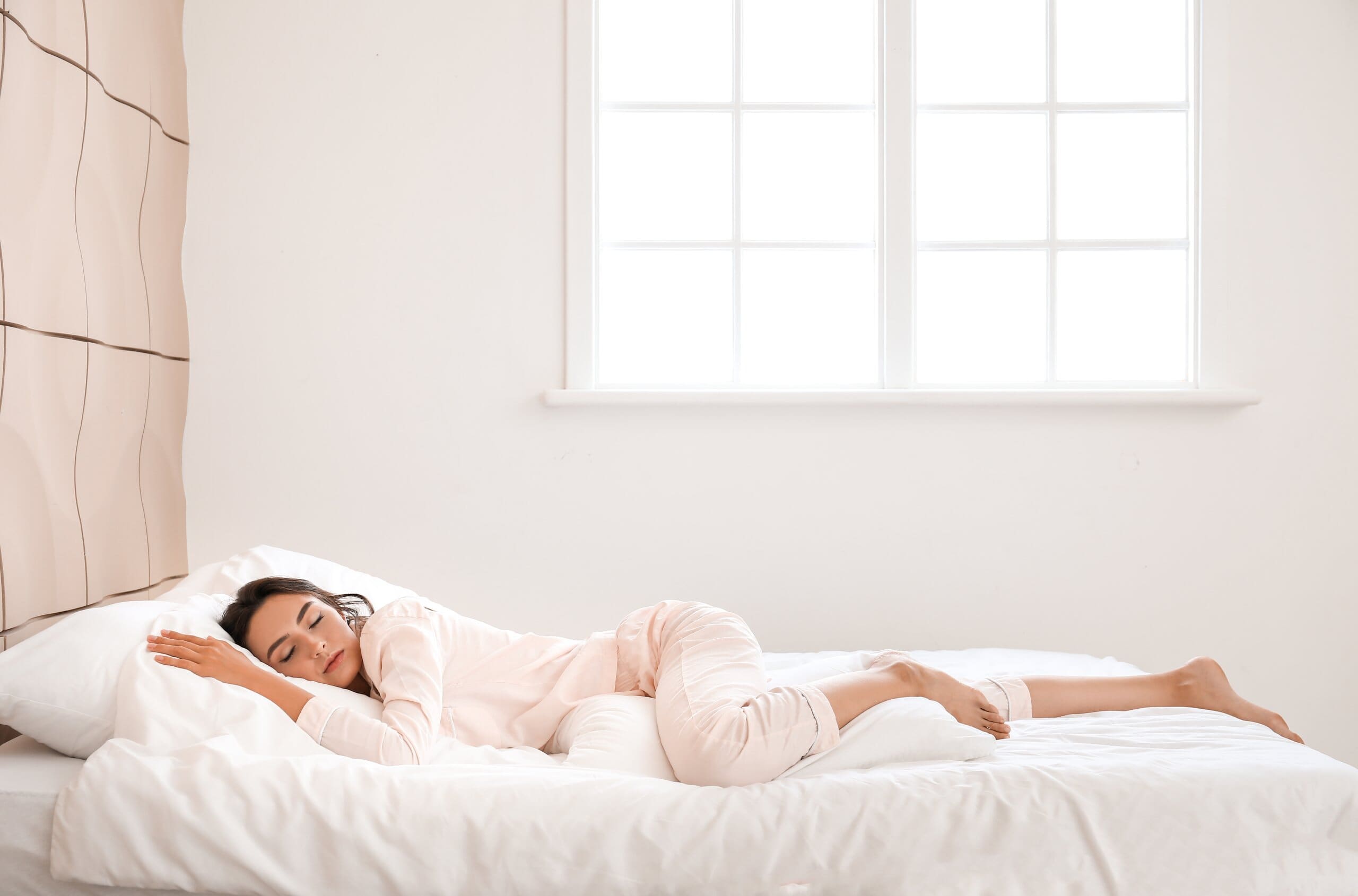
What is an orthopaedic mattress?
Orthopaedic mattresses are expertly designed sleeping surfaces which provide a firm base for those requiring some extra support. Alleviating strain on bones, muscles, and joints, orthopaedic mattresses are supportive to parts of the body which are susceptible to pain and tension.
They are specially designed to offer firm support where it's needed and spread body weight across the surface area. Backed by science, they derive from medical studies which focus on spinal and joint disorders. Thus, these specialist mattresses for back pain are tailored towards tackling issues which threaten to keep you up at night.
Essentially, their design offers targeted support to pain points, and the firmness of the mattress prevents sagging, protecting your spine against unnatural bending and uncomfortable sleeping positions.
What’s the difference between an orthopaedic mattress and a normal mattress?
The key difference between an orthopaedic mattress and a normal mattress is down to firmness. Generally, how firm a mattress is will have a direct influence on the level of support it provides. The general consensus from experts is that a firmer mattress helps those with back problems to reduce discomfort and get a better night’s sleep.
However, it's not always the case that the firmest mattress available will necessarily suit everyone with back pain, so it is essential to take other factors into account. It's also wise to talk to your doctor if you plan to change your mattress to help ease intense back pain. Other factors that can impact how supportive you find your mattress are your weight or sleeping position; for example, those of a lighter build who prefer to sleep on their side will likely benefit more from a soft mattress.
An orthopaedic mattress provides enhanced support along the length of the body. The aim is to keep the spine in a neutral position to eliminate pressure points. Orthopaedic mattresses deliver outstanding support for the shoulders, hips, lower back and spine.
As they are often constructed using a sprung core rather than relying on just memory foam layers (which tend to be a little softer), they are also well-ventilated. This makes orthopaedic mattresses cooler to sleep on, as the air flows through the core and keeps the ambient temperature lower for a fresher, more comfortable feel.
Orthopaedic mattresses that use reflex foam rather than traditional memory foam also tend to provide a little additional support, as the reflex foam structure is denser and firmer. The combination of foam layers, whether memory foam, latex foam, or reflex foam, provides a more cushioned feel but with no compromise on support.
In contrast, a typical mattress falls into the medium to medium-firm category, so it feels softer and more pliant than an orthopaedic mattress. Changing from a medium to a firmer orthopaedic mattress can take some getting used to, especially if you sleep on your back or side.
But if you want the support of an orthopaedic mattress but prefer a softer feel, a good compromise is to combine an orthopaedic mattress with a soft mattress topper to give you the perfect combination of comfort and support.
Orthopaedic mattress benefits
If you're desperate for a great night's sleep and have back problems, an orthopaedic mattress may be your best choice. Let's get rid of one myth from the outset, though: orthopaedic mattresses are not always extra-firm.
In fact, a medium firm mattress option gives you a high level of support with a slighty softer feel than a standard firm mattress. If you want something a little more 'snuggly', then try adding a mattress topper. The main benefits of choosing an orthopaedic mattress include:
- Getting rid of body pain – orthopaedic mattresses are designed to help improve your posture when you sleep. This allows the muscles to relax properly, preventing aches and pains.
- Keeping your spine aligned – this is the secret to getting rid of back pain. If your spine is in a ‘neutral’ position (aligned rather than curved), it reduces muscle tiredness, taking the stress out of your posture.
- Stops pressure points from forming – even the best of us are vulnerable to pain at key points, including the neck, shoulders, lower back and hips. However, an orthopaedic mattress helps to target specific support to these areas.
- Stops roll-together – unless you want to snuggle with your partner all night, roll-together can ruin a good night's sleep. A firmer mattress prevents this from happening, so you both get the rest you need.
- No movement transference – with a firm mattress you cut down on movement transference. So if one partner wriggles about, it won't disturb the other person's sleep.
- Ideal for front sleepers – if you do sleep on your front, a firmer mattress will prevent your spine from curving, making it the ideal mattress type for stomach sleepers. This should give you a better night’s sleep and less back pain.
Things to consider when choosing an orthopaedic mattress
You might be wondering, what’s the best orthopaedic mattress for you? Well, your preferred sleeping position can help to determine how firm you need your mattress to be, as certain materials conform better to the position of your body as you sleep.
If you sleep on your back, a firmer mattress is likely to provide optimal spinal support. In contrast, side sleepers may benefit more from a slightly softer mattress, as it offers better cushioning for the hips and shoulders, allowing the hips and shoulders to dip nicely into the mattress surface.
A medium-firm or firm mattress will suit those who sleep on their front, as it will help to envelop the hips and prevent extra strain on the back. It’s also worth noting that different materials provide varying levels of comfort and support, for example natural mattresses are usually more cushioning.
Durability is another factor worth considering. A good-quality mattress should retain its shape over time, making it a worthwhile investment. A well-maintained orthopaedic mattress can last up to 12 years!
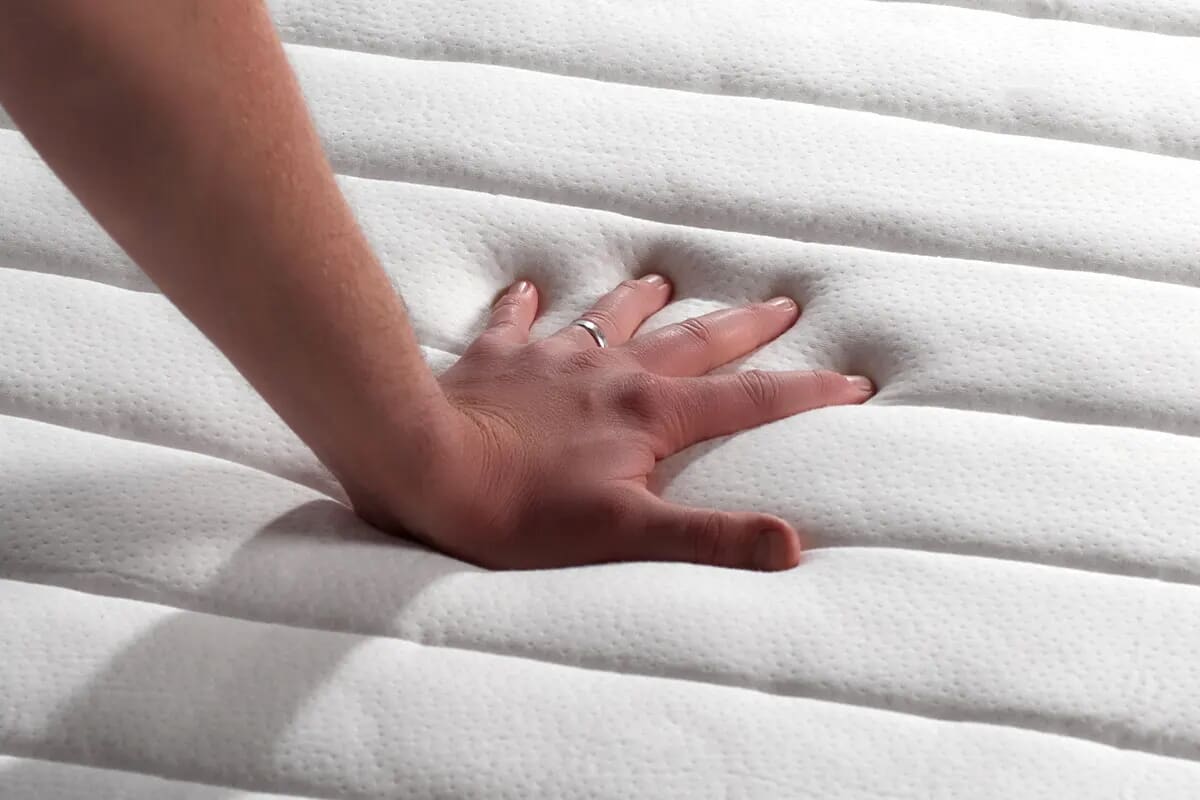
Which is best for back pain - an orthopaedic mattress or memory foam?
A huge range of mattresses are available for preventing or relieving back pain. The two main types are memory foam and pocket sprung. But you could also choose a Miracoil™ sprung option, or a traditional spring version.
Memory foam orthopaedic mattresses
Invented by NASA, memory foam has been a real game-changer for mattresses. They tend to range in the medium-firm to the firm range. They provide plenty of cushioning to keep your spine in that all-important neutral position.
Pocket-sprung orthopaedic mattresses
With thousands of individual springs sitting in their own fabric pockets, pocket-sprung mattresses provide incredibly reactive support and flawless comfort. Built up with a pocketed, sprung core and layers of fibres for a cushioned sleeping area, they’re made using traditional techniques like hand tufting to keep the fibres in place and avoid lumps and bumps.
Traditional sprung orthopaedic mattresses
Using a spring matrix rather than pocketed springs, this classic design is also a great budget option. They're available in a range of sizes and have a strong sprung core that delivers excellent support all night long.
Latex orthopaedic mattresses
Latex mattresses deliver truly outstanding support and naturally contour to the shape of your body. Because latex is naturally hypoallergenic, they're also a good choice for asthma or allergy sufferers. They're durable and represent real value for money.
Reflex foam orthopaedic mattresses
Although structurally similar to memory foam, reflex foam is firmer and more supportive. Reflex foam is also denser, which is beneficial for those with back pain. With more foam per area than other types of foam, this density helps it support your body as optimally as possible.
The top 5 orthopaedic mattresses
There are plenty of choices when it comes to orthopaedic mattresses. Our Product Experts have collated the best orthopaedic mattresses from our collection, giving you somewhere to start from if you're looking for one of these highly supportive mattresses.
Coolflex® Lux Ortho Pocket Mattress
Combining the solution to overheating and back pain in one, this mattress uses both pocket springs and reflex foam. The firm-feel pocket springs provide targeted support to key areas of your body, while dense relfex foam gently moulds to your shape for personalised support. Plus, enhanced air circualation provides a cooler, fresher sleeping environment.
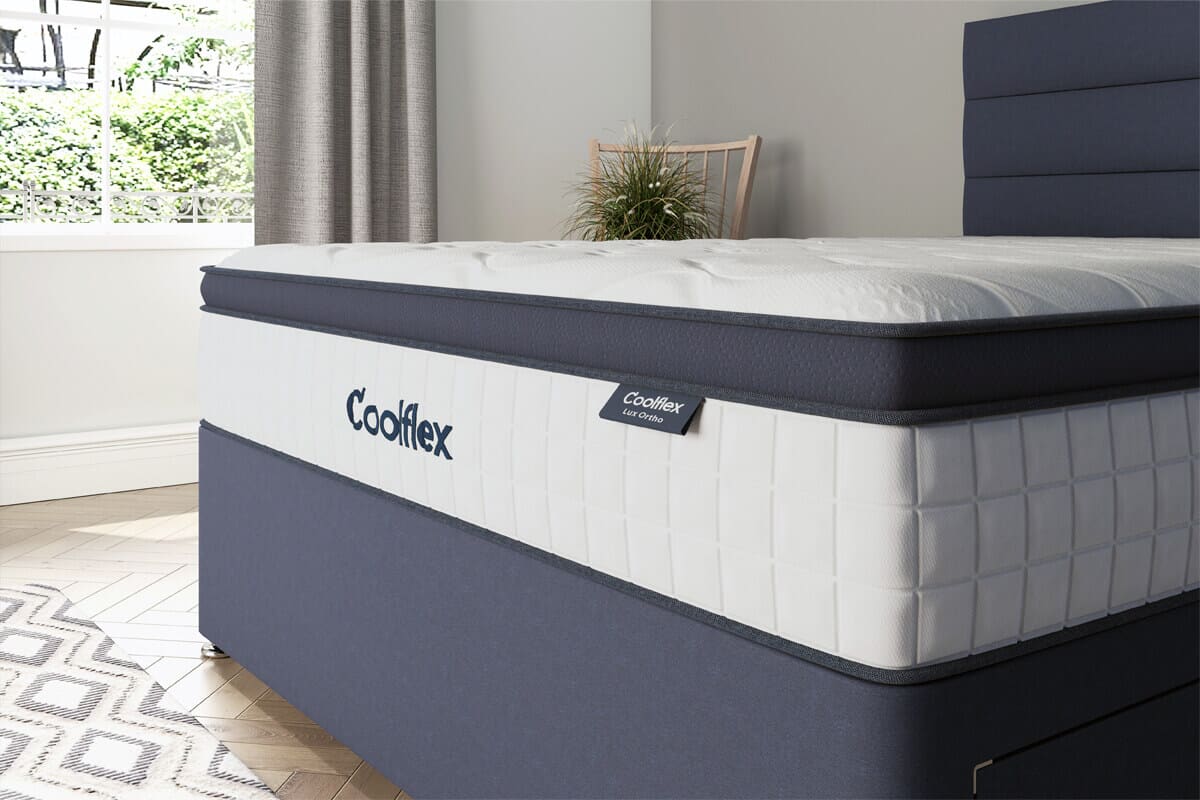
Spring King® Backcare Ultimate 3000 Mattress
This extra-firm mattress is exactly that - an intensely firm surface for specialist support. If you are certain you need as firm of a mattress as possible, this orthopaedic support can help to relieve tension in all the right places. Layers of wool ensure you don't feel like you're sleeping on a plank of wood, however, and the pocket spring system does adapt to yot movements.

SleepSoul Wish 3000 Series Pocket Cool Gel Mattress
A best-seller, this orthopaedic mattress features a pocket spring support system and innovative Cool Gel Memory Foam. With a medium-firm feel, you'll enjoy a more gentle level of support than if you chose a firm option, but still experience impressive pressure-relief at key areas of your body. The Cool Gel Memory Foam gently contours your body, offering cushioning and actively drawing heat away for a fresher experience.
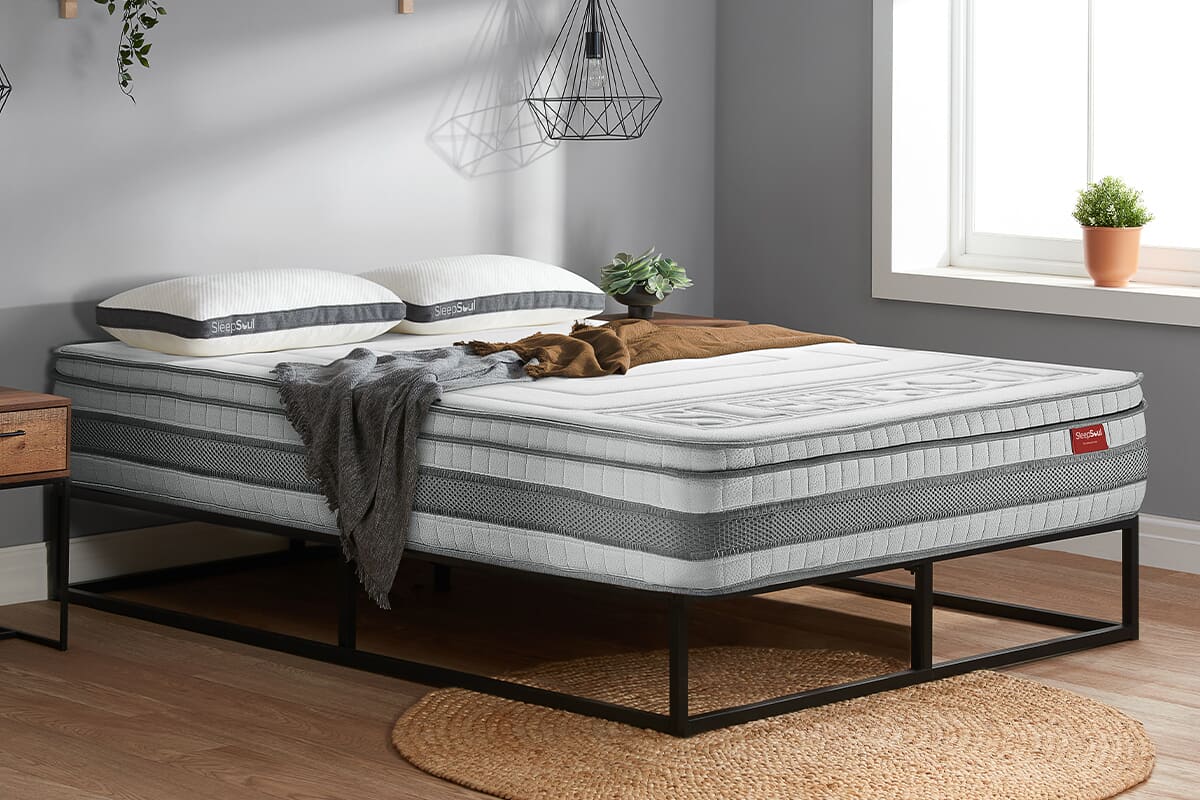
Tuft & Springs™ Ortho Brilliance 2000 Mattress
This luxury orthopaedic mattress is plumped with layers of silk, wool, cotton, and cashmere for ultimate indulgence. Keeping a firm feel, these natural materials help cushion your body in all the right places, working alongside up to 2000 pocket springs to target essential support to these key areas.
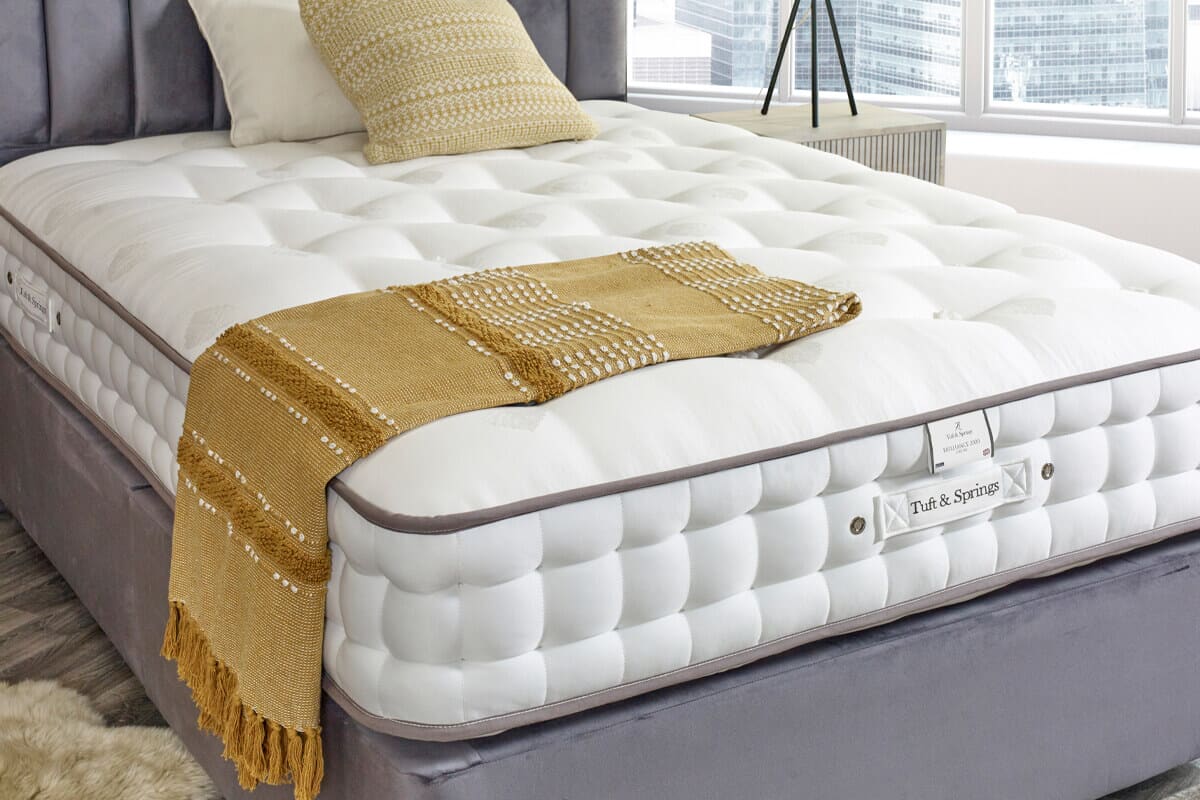
TEMPUR® ONE Firm Mattress
If your budget is on the larger side, consider this innovative firm mattress, designed by scientists. Made with authentic TEMPUR® Material first used by NASA, this orthopaedic mattress features billions of firm visco-elasatic cells that contour to your unique body shape without letting you sink in. This motion-absorbing technology also makes it resilient and long-lasting, making it a worthwhile investment in your sleep.
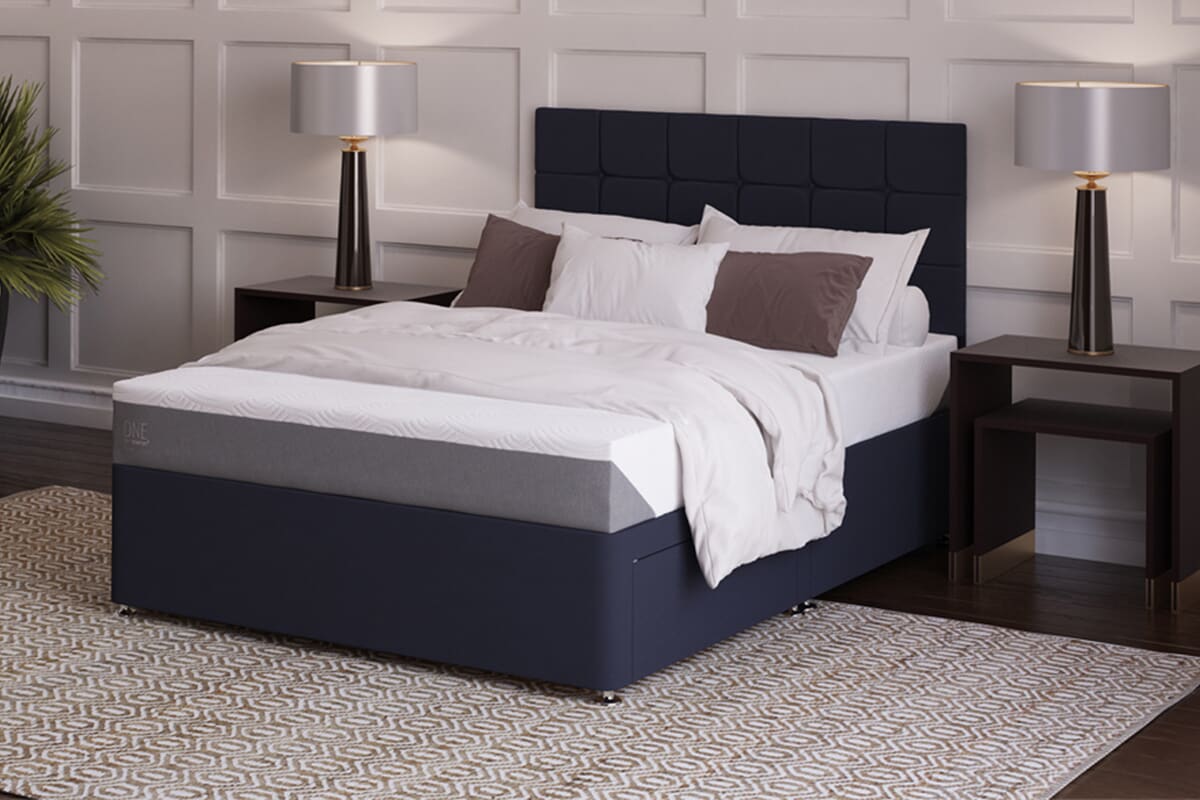
How long do ortho mattresses last?
As a general rule of thumb, ortho mattresses should be replaced after around 8 years of use. As the mattress gets older, the springs and fillings start to deteriorate, reducing the orthopaedic support levels it can provide.
Orthopaedic mattresses are just like any other type of mattress. The only difference is that they are designed to provide greater levels of support. Therefore, they should last as long as a regular mattress with no loss of performance.
The average lifespan of a mattress is around eight years. This is when most manufacturers suggest replacing yours to ensure maximum comfort. The best way to prolong the life of any mattress is to keep it in tip-top condition. You can do that by regularly airing your mattress and keeping it as clean as possible.
If you have a single-sided mattress, you should rotate it from head to foot every few months. Simply turn your mattress to prevent dips and lumps from forming. If you have a double-sided option, you can rotate it 180 degrees and turn it over to the other side to get rid of lumps. It may be a two-person job if the mattress is larger, but it's well worth the effort.
Find your ideal ortho mattress in our collection
Choosing a mattress can be tricky, but you should now have everything you need to consider whether an orthopaedic mattress is right for you.
Naturally, if you want to start looking for your new orthopaedic mattress now, then why not browse the MattressNextDay range? From doubles and singles to king-sized models, our mattress selection caters to all sleepers.





